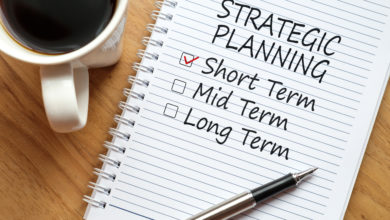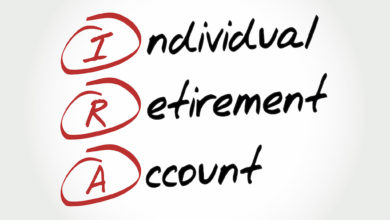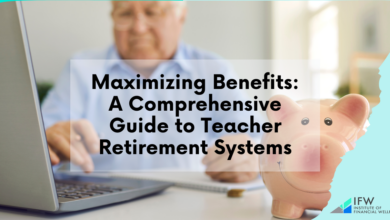Mastering Debt-Free Retirement: Your Practical Guide to Financial Freedom

“Debt is like a ball and chain; it will weigh you down until you break free. True freedom is being debt-free.” – Rob Berger
Imagine sailing into the sunset of your golden years, free from financial burdens. Yes, we’re talking about achieving a debt-free retirement. It’s not a fairy tale, but a realistic goal that you can reach with a solid plan and disciplined execution. This journey will take us through understanding types of debt, managing them effectively, balancing retirement savings and debt repayment, creating a safety net, consulting financial professionals, preparing for fixed-income living, and finally, investing wisely after achieving a debt-free retirement.
Key Takeaways
- Navigate towards a debt-free retirement by managing debts effectively and budgeting to identify potential areas of saving.
- Strategize car loan and mortgage payments with emotional and tax implications in mind while creating a safety net through emergency funds & life insurance policies.
- Consult financial professionals for guidance on achieving debt freedom & post payoff, focus investments on diversifying & long-term growth for maximum security.
Navigating Towards a Debt-Free Retirement
Beginning a retirement journey free of debt is key to living out one’s senior years in peace and contentment. Understanding the various types of debts that older people deal with on average can help set up an actionable plan for tackling these obligations. Credit card debt proves most common at 67%, while mortgages (37%) and vehicle payments (32%) make up part of it, too [1]. Though total elimination isn’t necessarily necessary, some debts like those from credit cards should be taken care of prior to retiring due to their high-interest rates – conversely, holding a mortgage or other low-interest rate type loans are likely better options for long-term investments when managed carefully during later life stages. As such, forming strategies around mitigating debts before hitting retirement age, as well as post-retirement planning, will smooth this transition into an elderly lifestyle over time.
How to Handle Debt Before Retiring
Debt management is an important issue, especially when preparing for retirement. Two noteworthy forms of debt are credit card debt and private student loans, both of which come with high interest rates. To address this problem, you should look into consolidating the debt by taking out personal loans at a lower rate to pay off these types of debts promptly rather than just making minimum payments on your credit card – otherwise, costs will increase due to accumulating interest charges.
Budgeting is also key in managing financial matters before retirement. Evaluate what can be done to save money, such as identifying and strategizing prompt repayment methods for high-interest debt so you’re able not only to pay it off but also set some aside towards retiring comfortably later down the line.
Understanding Debt in Retirement
As one approaches retirement, debt management shifts its focus from high-interest credit card debts to managing good and bad debt during this stage of life. Good debt, such as mortgages, may provide potential returns over time while generating wealth [2]. Plus, they offer relatively low-interest rates, which you can benefit from if your home equity is sufficient and you have enough income to qualify for a mortgage loan.
Conversely, any form of bad debt, e.g., those made with costly credit cards, should be avoided in order not to interfere with financial stability goals in the long run. In particular, when it comes to student loans and federal defaulting within retirement, The penalty includes up to 15% garnishment on each Social Security benefit check until full payment has been accomplished.
Consequently, proper knowledge & aptitude for dealing with all kinds of debt before and after retirement plays an essential role in planning for a financially secure future.
Strategies to Reduce Debt Before Retiring
When it comes to reducing debt before retirement and increasing your retirement score, credit card debt should be the main focus. It is wise to avoid using them as much and put energy into paying off those that are highest in interest first; doing so can save a considerable amount of money over time. As for student loans, take note of what’s owed plus its repayment terms. If applicable, look at altered plans or periods of deferment/forbearance, which could help pay less overall on such debts. For mortgages with fixed rates, not only may one qualify for tax deductions, but also decide whether downsizing when retiring is necessary depending on affordability levels compared with current income based on where they live (which has an effect, too).
Balancing Retirement Savings and Debt Repayment

As you plan for retirement, it is important to consider two key factors: saving money in a retirement account and paying off debt. Properly balancing these obligations requires careful thought into things like tax advantages, interest rates, and employer matching contributions, which can help determine where extra funds should be allocated. Interestingly enough, though, when your job offers supplemental savings programs such as 401(k), prioritizing putting away more cash towards this avenue may be the better choice than just tackling outstanding bills first since who would want to pass up free money? Here, we will explore how best to utilize any spare resources while looking at both major categories of financial planning during this stage of the life cycle.
Allocating Extra Money Wisely
At the end of every month, after taking care of your necessary costs, you may have some additional money. To intelligently utilize this extra cash in order to both payoff debt and contribute towards retirement savings, one must start by computing their disposable income, which is calculated as total monthly earnings minus outgoings. Then, make a list of regular expenses so that potential savings can be identified. Such as reducing funds used for shopping or eating out frequently – giving yourself more financial leeway to direct into either repaying any existing loans/debts or depositing for eventual retirement needs. Remember! Each penny saved effectively adds up like it has been earned over time – smart planning does matter when managing finances responsibly.
The Hierarchy of Paying Off Debt
When it comes to paying off debt, high-interest credit card debt should be the first priority. Paying this down helps you save money on interest payments in the long run and reduce your overall debt quickly. Second, student loan debts for which one can explore forgiveness programs, consolidate loans, or refinance with lower rates of interest. Last are car loan and mortgage payments that could include making extra payment options like refinancing or looking into modification solutions. Let’s take a closer look at these steps now so we can manage our retirement savings better while repaying our obligations responsibly.
Tackling High-Interest Credit Card Debt
When it comes to high-interest debt, credit card debt is one of the most expensive. The average rate on these debts can reach up to 19.9% [3]. For this reason, it makes financial sense to pay off such debts first and foremost. A way to do so could be consolidating them onto a lower-interest card while paying as much as possible each month, thus allowing for reduced payments plus lower rates, too, which would make settling your obligations more accessible over time.
Another effective move is shifting from relying on credit cards to using cash instead. Helping avoid spiraling into more unsecured loans. Every penny saved in interest goes towards securing a good retirement fund, after all!
Addressing Student Loan Debt
After dealing with a high credit card debt, the next step is to tackle student loan debt. Finding and taking part in forgiveness programs may be effective for reducing or eliminating this kind of financial obligation. Allowing you more cash to save towards retirement.
Another approach when managing student loan debts is giving them over to your children if they are capable of making regular payments without an issue. This would both reduce how much money one has borrowed as well as free up funds meant for retiring comfortably.
Strategizing Car Loan and Mortgage Payments
The process of settling debt begins with creating a plan for dealing with car loans, mortgages, and other payments. By paying off your car loan, you can reduce the amount of interest owed as well as avoid being behind on repayments. It is possible to bring down monthly mortgage costs by refinancing, which in turn will enable more savings towards retirement funds.
It’s important to factor in emotional and fiscal matters when handling these types of debts-mortgage interest expenses may be tax deductible, so this should also be taken into account before deciding how to manage the payments related to both mortgage loans and cars.
Creating a Safety Net: Emergency Funds and Insurance

Securing a financial cushion is just as critical as paying off debt and preparing for retirement. Setting up an emergency fund can reduce the economic consequences of unforeseen expenses while providing peace of mind. It’s typically suggested that retirees have in their possession three to six months’ worth of living costs saved away within their safety net.
Considering life insurance policies should also be part of building your security system. Term life plans are able to give coverage over a defined period, which assists with securing loved ones financially in case anything happens to you. By setting aside money for emergencies, and looking into different types of insurance coverage options, it allows one more control when dealing with unexpected monetary issues ahead down the line.
Consulting Financial Professionals
The journey towards a debt-free retirement can be difficult, which is why professional financial advisors are so helpful. They help individuals plan and budget properly to secure their long-term freedom from any outstanding payments prior to or during the retirement period. Credit counselors and financiers provide crucial counsel in both settling your debts as well as setting up savings for when you retire that allow you to pay off what’s owed without putting too much strain on yourself now.
Though there may be costs associated with hiring an expert advisor, many find it worth its weight in gold, given how they develop plans tailored specifically around one’s needs. Constructing strategies that allow them not only to get out of debt but also to prepare financially for the future by investing whatever money they have left after paying down all due funds required of them before retiring guilt-free!
Preparing for Fixed Income Living
When paying off debts in preparation for retirement, one must transition to living on a fixed income. It is important to create an accurate budget and adjust spending habits accordingly. Jotting down all essential expenses helps with estimating the required amount of money needed during this new stage of life. Managing healthcare costs can be accomplished by examining health plan information and setting up payment plans or bringing on board a medical bill advocate who may help reduce expenses effectively. Taking appropriate measures when transitioning into a fixed lifestyle will go toward ensuring that retired years are comfortable and worry-free.
Investment Strategies Post-Debt Payoff
Having achieved a debt-free retirement, the next goal shifts to wealth growth. Post-debt payoff strategies may include diversifying investments and focusing on long-term gains. This could mean utilizing income from those assets in order to pay off bad debts as well.
Long-term focus brings many benefits, such as increasing one’s standard of living, boosting their savings rate for additional security, and providing access to credit should it be required down the line. To make sure your golden years are really enjoyable, being wise with investment decisions is key!
Navigating Financial Waters: Achieve a Debt-Free Retirement with the Institute of Financial Wellness
Financial planning can be a tricky endeavor, but having the proper guidance is essential. The Institute of Financial Wellness is committed to providing necessary services and resources for those wanting to achieve financial stability. With comprehensive courses like “Debt Management,” “Investing For The Future,” and even one-on-one coaching sessions, we are there for you when making crucial decisions about your debt-free retirement path.
Their online curriculum gives individuals access to understanding core principles needed in order to secure their desired quality of life. Whether that’s creating an investment portfolio or developing sensible ways to manage debt more effectively — this institute offers it all! Plus, with programs such as ‘Retirement Planning’, discovering solutions specific towards constructing a viable plan will bring assurance into investing successfully without any regrets down the road.
The tools available through our organization allow people to attain control over personal finances with minimal stress so that everyone may reap rewards from prudent saving habits while preparing themselves financially for retirement. By leveraging these teaching methods taught by knowledgeable professionals – navigating complicated waters ahead should become much easier, allowing them to arrive safely at their destination: debt-free retirement.
Full Summary
Reaching a debt-free retirement can be achievable through careful planning and implementing the advice outlined in this article. We have covered various topics, including understanding different types of debt, maintaining a balance between saving for retirement and clearing debts, consulting financial experts to get expert opinions when necessary, as well as considering fixed-income living after retiring.
Creating a safety net is also an important factor in achieving success with these strategies. With consistent effort toward your goals, you are able to enjoy not only freedom from payment worries during your retirement years but peace of mind, too!
Frequently Asked Questions
Is it best to retire with no debt?
It is best to retire without any debt. Paying off all debt, including mortgages, should be a priority, and retirement should be a time when you are free from all debt, whether at 65 or earlier.
What percent of retirees are debt-free?
It has been reported that only 25% of retired Boomers have no debt, with the other 75% still holding some form of financial liability. This suggests most retirees are not completely free from any sort of debt yet.
Can I retire with 500k and no debt?
With $500k and no debt, you can retire comfortably. The 4% rule permits an annual withdrawal of up to $20,000 from the age of 60 until 85, which covers 25 years, allowing for a comfortable retirement lifestyle without any outstanding debts.
Is it better to have a 401k or debt free?
It could be advantageous to start by discharging liabilities with a higher interest rate before setting funds aside for 401(k) contributions. Doing this can lighten your monthly expenses and give you more disposable income in the near future.
Alternatively, if there are low-interest loans available, it might still be possible to pay off debts while investing in retirement savings at the same time.
What types of debt are common among retirees?
Retired individuals often have credit card debt, mortgages, and car loans as their major sources of financial obligation. Credit cards can be a particular source of worry for these people when trying to balance paying off what they owe.
Erik C. Sussman, CLU®, ChFC®, CFP®, and CEO of The Institute of Financial Wellness founded the company to provide financial education, resources, and services that help people live their best lives.
For Financial Professionals:
The Institute of Financial Wellness provides proven sales and marketing systems, state-of-the-art technology, training, and support to financial professionals nationwide. The IFW helps financial professionals grow their practices to the next level! IFW Certified Financial Professionals are an elite group of professionals that, together with the IFW, help people succeed financially and live their best lives.
For Consumers:
The Institute of Financial Wellness is the most comprehensive multi-media network for financial education, resources, and services. In fulfilling our mission to help people “Get There” and live their best life, we deliver the following five unique value propositions:
Our philosophy is that when it comes to financial decisions, Never say Never. Never say Always. It Depends!






